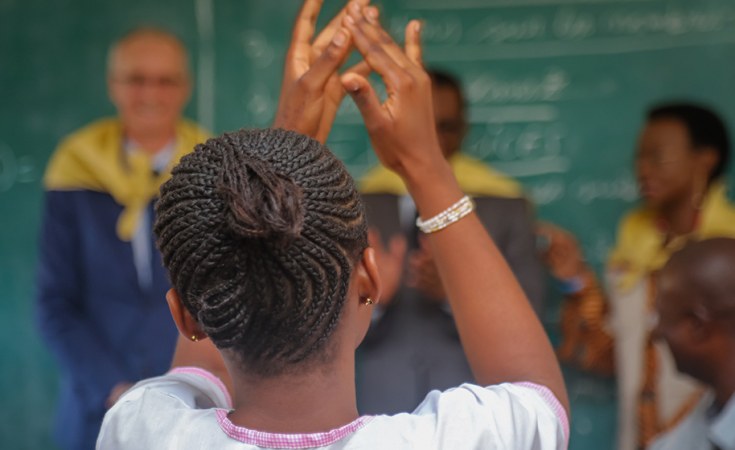Brazzaville — About 40 million people live with hearing loss in the African region, but the figure could rise to 54 million by 2030 if urgent measures are not take to address the problem, according to a new World Health Organization (WHO) report.
Hearing loss has profound impact on human lives and economies, costing Africa US$ 27 billion annually, according to the Status Report on ear and hearing care in the WHO African Region, launched today during the African Summit on Hearing Impairment in Nairobi, Kenya.
Without urgent interventions, widespread hearing loss, which disproportionately affects poor and vulnerable populations, will continue to escalate, amplifying existing inequalities in health services access across Africa.
For children, the far-reaching consequences of hearing loss include delays in language development, raising the risk of poor educational outcomes and limited future career prospects. Adults with untreated hearing loss often face isolation, loneliness and an increased risk for depression and dementia.
The report identifies multiple factors driving the surge in prevalence of hearing loss in the African region. Primary among these is an acute shortage of ear and hearing care (EHC) specialists, as well as maldistribution of available workforce to the advantage of urban areas. More than 56% of African countries, for example, have only a single ear, nose and throat (ENT) specialist for every million people. In comparison, the European region has about 50 for every million people.
More than three-quarters of African countries, meanwhile, have fewer than one audiologist and one speech and language therapist for every one million people. In addition, although 33 million Africans could benefit from a hearing aid, only about 10% have access due to lack of EHC financing, and consequent high costs.
Data from 43 African countries show that while 36 countries provide EHC services at the tertiary level, similar services are not offered at primary care level. This is despite the fact that the common causes of hearing loss are mostly preventable through simple public health interventions, or measures to mitigate the risk factors.
Among children living in low- and middle-income countries, the report said, up to 75% of hearing loss is due to preventable causes such as infections and common ear diseases as well as birth complications. Yet, the analysis found that most countries do not routinely conduct hearing screening of newborns.
Even in countries with EHC programmes, EHC interventions are not integrated into such priority health programmes as school health programme, and occupational health or healthy ageing programme. This challenge, the authors said, was compounded by the lack of national policies and plans for strengthening delivery of EHC, and low implementation levels even where these plans exist. In addition, 35% of countries do not have a budget allocated to EHC activities, with patients having to bear the entire cost of any related treatment and care.
Among other things, the report recommends that countries leverage the report to galvanize action at the highest level, including advocating for policies focused on EHC and related activities. EHC should also be urgently integrated into existing programmes to optimize use of scarce resources. public-private partnerships should be explored by governments towards strengthening EHC services.
The report also highlighted the need for dedicated financing for EHC, to equip facilities and deliver products and technologies, and to optimize EHC research and development and health workforce capacity strengthening.


